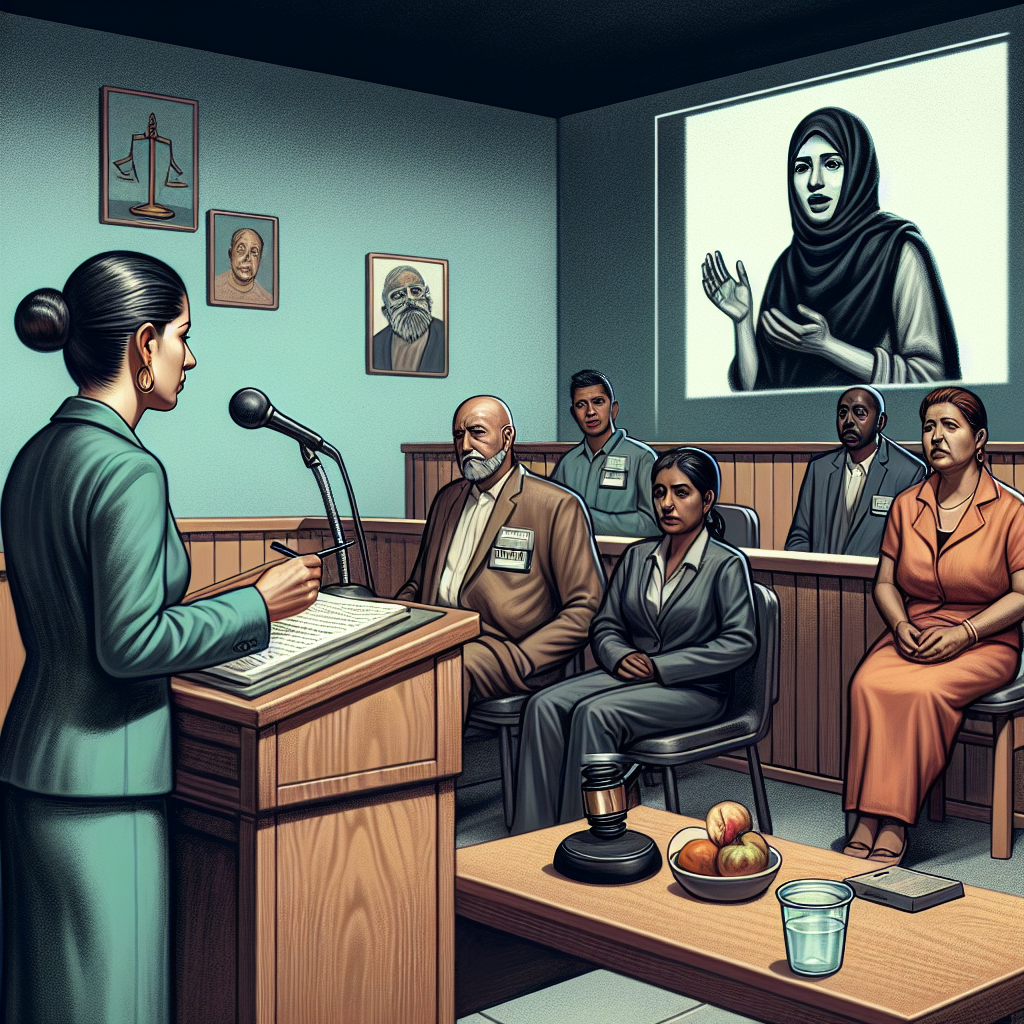Proses hukum TKI yang mengalami kekerasan melibatkan penyelidikan, pengumpulan bukti, persidangan, dan penegakan hukum terhadap pelaku.
Proses Hukum untuk TKI yang Mengalami Kekerasan
-
Table of Contents
- Introduction
- The Plight of TKIs
- 1.1 The Vulnerability of TKIs
- 1.2 Forms of Violence Faced by TKIs
- Legal Protection for TKIs
- 2.1 Indonesian Government Initiatives
- 2.2 Pre-Departure Training
- 2.3 Bilateral Agreements
- 2.4 Overseas Indonesian Embassies and Consulates
- The Legal Process for TKIs Facing Violence
- 3.1 Reporting the Incident
- 3.2 Assistance from Indonesian Diplomatic Missions
- 3.3 Legal Proceedings
- 3.4 Repatriation and Rehabilitation
- Conclusion
Introduction

Indonesia is one of the largest labor-exporting countries in the world, with millions of its citizens working abroad as migrant workers, commonly known as Tenaga Kerja Indonesia (TKI). While many TKIs have positive experiences working overseas, there are unfortunate cases where they face various forms of abuse and violence. This article will explore the legal process for TKIs who experience violence, focusing on the steps taken by the Indonesian government to protect their rights and seek justice.
The Plight of TKIs
1.1 The Vulnerability of TKIs
TKIs often leave their families and homes in search of better economic opportunities abroad. However, this pursuit of a better life can expose them to various risks, including exploitation, abuse, and violence. Many TKIs work in sectors such as domestic work, construction, and manufacturing, where they may face long working hours, low wages, and poor living conditions. These circumstances make them vulnerable to mistreatment and violence from their employers or recruitment agencies.
1.2 Forms of Violence Faced by TKIs
TKIs can experience different forms of violence while working abroad. Physical abuse, sexual harassment, and psychological trauma are some of the most common types of violence faced by TKIs. They may be subjected to physical assault, forced labor, confinement, or even sexual exploitation. These acts not only violate their human rights but also have severe consequences on their physical and mental well-being.
Legal Protection for TKIs
2.1 Indonesian Government Initiatives
Recognizing the need to protect its citizens working overseas, the Indonesian government has implemented various initiatives to safeguard the rights of TKIs. The Ministry of Manpower and Transmigration, in collaboration with other relevant agencies, has established regulations and programs to ensure the welfare and safety of TKIs. These initiatives include pre-departure training, bilateral agreements with host countries, and the establishment of overseas Indonesian embassies and consulates.
2.2 Pre-Departure Training
One of the key measures taken by the Indonesian government is the implementation of mandatory pre-departure training for TKIs. This training equips them with essential knowledge about their rights, responsibilities, and potential risks they may face while working abroad. It also provides them with information on how to seek help and report any form of abuse or violence. By empowering TKIs with this knowledge, the government aims to reduce their vulnerability and increase their ability to protect themselves.
2.3 Bilateral Agreements
The Indonesian government has signed bilateral agreements with several host countries to ensure the protection of TKIs. These agreements outline the rights and obligations of both the sending and receiving countries, including provisions for the prevention of violence and abuse. They also establish mechanisms for cooperation and coordination between the governments of both countries to address issues faced by TKIs effectively. These agreements serve as a legal framework to hold perpetrators accountable and seek justice for TKIs who experience violence.
2.4 Overseas Indonesian Embassies and Consulates
To provide immediate assistance and support to TKIs, the Indonesian government has established overseas embassies and consulates in countries with a significant number of Indonesian migrant workers. These diplomatic missions play a crucial role in protecting the rights of TKIs by providing legal aid, counseling services, and facilitating communication between TKIs and their families back home. They also collaborate with local authorities to investigate cases of violence and ensure that perpetrators are held accountable under the law.
The Legal Process for TKIs Facing Violence
3.1 Reporting the Incident
When a TKI faces violence or abuse, the first step in seeking justice is to report the incident. TKIs can report the abuse to their employers, recruitment agencies, or directly to the nearest Indonesian embassy or consulate. It is essential for TKIs to document any evidence of the violence, such as photographs, medical reports, or witness statements, to strengthen their case.
3.2 Assistance from Indonesian Diplomatic Missions
Once the incident is reported, Indonesian diplomatic missions abroad provide immediate assistance to the affected TKI. They offer shelter, medical support, and legal aid to ensure the well-being of the victim. The diplomatic missions also liaise with local authorities to initiate investigations into the case and gather evidence for legal proceedings.
3.3 Legal Proceedings
The legal process for TKIs facing violence varies depending on the host country’s legal system and the bilateral agreements in place. In some cases, the TKI may file a complaint with local law enforcement agencies, while in others, the case may be handled through diplomatic channels. The Indonesian government works closely with the host country’s authorities to ensure that the legal proceedings are fair and transparent.
3.4 Repatriation and Rehabilitation
If the TKI decides to return to Indonesia, the government facilitates their repatriation and provides necessary support for their reintegration into society. This support includes medical and psychological assistance, vocational training, and financial aid to help them rebuild their lives after the traumatic experience.
Conclusion
The Indonesian government has taken significant steps to protect the rights of TKIs who experience violence while working abroad. Through pre-departure training, bilateral agreements, and the establishment of overseas embassies and consulates, the government aims to prevent violence, provide immediate assistance, and seek justice for affected TKIs. The legal process for TKIs facing violence involves reporting the incident, receiving assistance from Indonesian diplomatic missions, and pursuing legal proceedings. By continuously improving these measures and raising awareness about the rights of TKIs, Indonesia strives to ensure the safety and well-being of its citizens working overseas.







